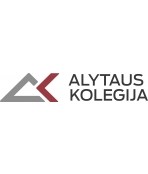 On 25 March 2022, the Director of SKVC signed an order to accredit the Alytaus kolegija for a 3-year term.
On 25 March 2022, the Director of SKVC signed an order to accredit the Alytaus kolegija for a 3-year term.
The external evaluation of the Alytaus kolegija has been carried out since September 2021, when the higher education institution submitted a self-assessment summary to the SKVC. A remote visit of an international expert team to the HEI was organised from 9-11 November 2021.
The experts assessed the HEI's performance negatively.
The experts' main insights for the Alytaus kolegija
The Management area of the HEI was rated unsatisfactory. This area does not meet the minimum requirements and was found to be substantially deficient. The experts point out that the main weaknesses relate to the limited capacity of the HEI to analyse and subsequently carry out evidence-based strategic planning and management, and an overdependence on informal processes. The strategic plan is not based on a proper evidence-based analysis of the context, does not set sufficiently specific and measurable objectives and priorities, and has narrow, mainly quantitative indicators. Resource planning and allocation of the Alytaus kolegija is not clearly linked to the strategic objectives, but the Alytaus kolegija is praised by experts for its consistent and successful efforts to diversify its revenue streams. The monitoring of the progress does not include a sufficiently systematic, comprehensive and critical analysis of the data collected to improve the performance of the Alytaus kolegija in its key areas of activity.
The Quality Assurance and the Studies and Research (Art) areas are rated as satisfactory, meeting the minimum requirements, but there some weaknesses need to be addressed.
The internal quality assurance system at the Alytaus kolegija is not yet fully compliant with the European Higher Education Area (EHEA) provisions and guidelines (ESG), as it focuses on procedural compliance rather than on quality improvement. There is little evidence of adequate planning of quality assurance measures and the effectiveness of the internal quality system, which reflects in particular the problems identified in the area of strategic planning and data collection and analysis in the management area. The Alytaus kolegija has not yet developed a sound strategic planning and management system. The experts stated that the Quality Assurance Unit is not fulfilling its functions accordingly to the date.
The QA provides substantial support to students and adequate support to staff during their induction period. In view of the currently limited research potential, the Alytaus kolegija could provide some financial support to staff to encourage them to pursue doctoral studies.
The Alytaus kolegija research capacity is weakened by the very low proportion of full-time academic staff and the absence of a core group of full-time staff with degrees; staff does not have clearly defined research objectives.
In terms of studies and applied science, the Alytaus kolegija study programmes are characterised by their flexibility and practical orientation. Programmes vary in quality and/or relevance to the regional labour market, and thus in the extent to which they are in line with the mission and strategic objectives of the Alytaus kolegija. However, new programmes are developed based on of needs, which are mainly identified by the social partners on an ad hoc basis, rather than on the basis of a systematic analysis of medium- and long-term labour market needs.
The Alytaus kolegija does not have a systematic system for the development of research and applied research, its research is insufficient to have a meaningful impact on curricula and to be in line with its mission and strategic objectives, and there is little evidence of improvement in research performance. While the Alytaus kolegija has developed an extensive network of international activities and is quite active in mobility activities, these international activities are not yet underpinned by a proper strategic framework and the extent of participation in mobility activities varies considerably between the different fields of study.
The main problems in this area stem from limited strategic planning and management capacity and the effectiveness of the College's quality assurance system.
The impact on regional and national development is assessed as good. It is a systematically developing area with no major weaknesses. Experts note that the Alytaus kolegija maintains close links with regional social actors, offers a wide range of services and lifelong learning opportunities, and is seen by social actors as an important player in regional development. The Alytaus kolegija is responsive to the needs identified by the social stakeholders, but does not have clear regional priorities and mechanisms for assessing the impact of its activities based on a systematic needs assessment. Problems in this area stem from the Alytaus kolegija limited strategic planning and management capacity.
The full evaluation of the Alytaus kolegija can be found here.



